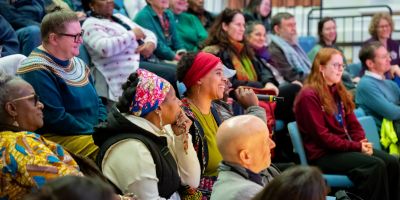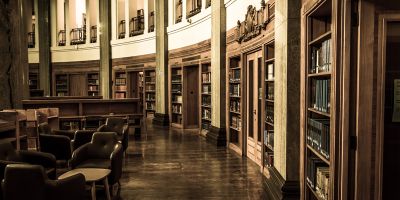From the Director
Each month Professor Gregory Radick surveys new developments in and around the LHRI.
Summertime, and the living is… if not easy, at least different from life in term-time. I hope the months ahead prove productive and/or restful, in whatever combination works for you. Come autumn, you’ll find the LHRI in full swing, with a new Director – the position has just been advertised – and a busy programme of activities. I’m delighted to announce that the LHRI’s flagship scheme for incubating interdisciplinary research projects, the Sadler Seminars, will next year sponsor 14 series, up from 10 this year and 4 the year before that. Here’s a summary list, though exact titles are still in flux:
(1) Adventures in Biolinguistic Diversity, convenor Janet Watson (LCS): on the diversity of ways in which nature is represented linguistically, and the links between linguistic and bio-diversity.
(2) The Arts/Health Nexus, convenor Sue Hayton (Cultural Institute): an umbrella progamme for interconnected seminars on arts practice as cognitive activity, arts therapy, arts as a catalyst for new ideas, and aesthetic dimensions of creativity.
(3) Can Professional Institutions Save the World? Climate Change, Ethical Transformation, and the Lessons of History, convenor Rob Lawlor (PRHS/CETL): on how new ethical standards become integrated into professional practice and the lessons to be learned for sustainable development.
(4) Leeds and the French Revolution, convenor Valerie Mainz (FAHACS): on what Leeds-area collections on the French Revolution have to teach us about the geographical conditioning of cultural memory.
(5) New Materialism in Artistic Practice, convenor Scott McLaughlin (Music): a practice-based inquiry into the relationship between knowing and doing in the work of artists across a range of media.
(6) Performance and Music TV: 1960 and After, convenor Tim Boon (LHRI Cheney Fellow): looking at how the developing televisual form of “arts-on-TV” interacted with the development of musical genres, idea of “high” and “low” cuture etc.
(7) Shh! Encounters in the Unquiet Library, Bridget Bennett (English): on libraries as overlooked sites of dissidence and activism.
(8) Signs Beyond Borders: Meaning-making Across Sign and Spoken Languages, convenor Elisabetta Adami (LCS): on the interaction of the sign-language using Deaf with the hearing as a novel window onto multilingual/multicultural communication.
(9) The Spirit and the Letter: Radical Practices of Community, Language and Design, convenor Paul Wilson (Design): on the links between visual design, linguistic design, political radicalism, and experiments in utopian living.
(10) Thinking for Dark Times: The Significance of Zygmunt Bauman for the Arts & Humanities and the Relevance of the Arts & Humanities to the Analysis of the Legacy of Zygmunt Bauman, convenor Griselda Pollock (FAHACS): new directions in the critical study and development of Bauman’s work as a timely arts & humanities resource.
(11) Touch: Sensing, Feeling, Knowing, convenor Helen Steward (PRHS): on this puzzling and neglected sense modality in wider perspective, philosophical especially, but also psychological, medical etc.
(12) Utopian Visions of the State in the Global South, convenor Elisabeth Leake (History): a re-examination of state development and nation building in the non-Western world not as so much deviation from a Western model but as a new, different model.
(13) Visual Archiving: Enriching the Memorial Landscape, convenors Claire Eldridge (History) and Nina Wardleworth (LCS): on the use of new media by marginalized communities to create, manage and make use of their own archives.
(14) What to Eat? Values and Food Choice, convenor Aaron Meskin (PRHS): on the empirical and conceptual analysis of the diverse and interacting values influencing food choice.
I’m sure the seminar convenors will be glad to hear from anyone interested in getting involved. Do watch out for more details, on the LHRI website and in the weekly LHRI Presents communiques. And if, looking ahead, you have an idea for the 2018-9 series, please drop me a line and we can explore possibilities. Prospects for the support of research beyond traditional disciplinary lines have never been better, in the Faculty as well as in the University more widely.
Greg Radick
G.M.Radick@leeds.ac.uk / x33269




